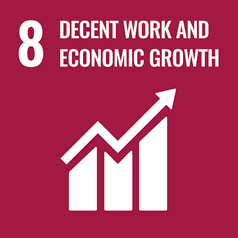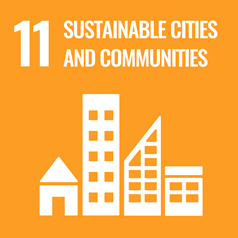Achievements and sound financial result captured in 2023 Annual Report
The University of Newcastle delivered strong results in 2023, as outlined in its 2023 Annual Report that was tabled in NSW Parliament today.

In 2023, sound progress was made against all Looking Ahead Strategic Plan objectives and the University is in a strong position overall at the plan’s implementation half-way point. Audited financial statements show that despite sector-wide constraints and broader economic challenges, the Consolidated Group achieved a breakeven result in 2023, reporting a nominal deficit of $0.3M.
“While not without its challenges, 2023 was another successful year for our University as we continued to focus on our dual purposes of delivering an outstanding student experience and serving our regions,” Vice-Chancellor and President, Professor Alex Zelinsky AO said.
“We made further progress against each of our Looking Ahead strategic priorities and we were, of course, delighted to have our efforts recognised with our highest-ever world ranking of 173 (QS 2024 World University Rankings),” Professor Zelinsky said.
"We were immensely proud to lead the way among Australian Universities, being the first to achieve five Cygnet Awards from Science in Australia Gender Equity (SAGE) under the Athena SWAN program.
“This and other achievements are testament to the commitment of our people to our values of excellence, equity, engagement and sustainability.”
Mirroring the sector-wide trend, the University of Newcastle experienced a flattening of domestic student enrolments in 2023. In contrast, the University’s international student cohort grew in 2023, with the largest ever cohort commencing their studies in Newcastle in Semester 1. At 6500 in 2023, international student numbers are strengthening but are yet to fully recover from the impact of COVID-19.
“While our 2023 results were better than expected, recent changes to international student visas have put more constraints on our operations and will make it difficult for us to reach our targets in 2024. We need reforms to get our international student numbers back to 2019 levels and above. This makes a difference for so many students, both locally and globally,” Professor Zelinsky said.
Research income grew by 5% to $176.9M in 2023 and thanks to the generosity of our community it was another strong year for donation and sponsorship income, with the University receiving $20.33M from 2,102 supporters. Interest rate rises and a larger investment principal (in part due to lower than budgeted expenditure on capital projects in 2023) delivered investment income of $9.7M, up from $2.0M in 2022.
However, operating expenses increased by 6% overall. Travel returned to pre COVID-19 levels; employee expenses rose by 9% after the finalisation of the new Enterprise Agreements, as well as small increases in full-time equivalent workforce numbers and increases in leave; and $64.6M was expended in scholarships, grants and prizes in 2023 (up by 13%) to support students at all levels of study and to attract international students.
On the financial results, Professor Zelinsky said that 2023 had been another challenging year across the sector.
“Achieving consolidated revenue and income of $868M in 2023 (up from $779M in 2022) in a year when domestic student revenue remained flat across the sector is certainly positive.
“Unfortunately, however, these gains were mitigated by rising costs in every aspect of operations. Our overall result of -$0.3M, the result of prudent financial management, is commendable in the short-term, but break-even results don’t sustain the long-term health of the University.
“It’s important that we budget for and achieve a surplus each year to allow for investment in our future.”
The Vice-Chancellor said that as caretakers of the University’s ageing estate, there needs to be a program of investment in the University’s capacity to deliver outstanding student and staff experiences and world-class research outcomes.
“Surpluses allow us to invest year-on-year and investment is crucial for us to compete nationally and internationally. It doesn’t take long before a lack of investment in the future impacts the present and we can't afford for that to happen,” Professor Zelinsky said.
In 2024 the University of Newcastle is investing in the construction of a new campus in Mann Street, Gosford and much needed student accommodation in the Newcastle CBD.
“These major projects will strengthen our University’s offering and deliver far-reaching social and economic benefits to our regions,” Professor Zelinsky said.
Related news
- We’re not going anywhere: Muswellbrook faces transition beyond coal head on
- University showcases achievements at NSW Parliament
- Enterprise bargaining factsheet
- A Celebration in Sound — musical generations unite to amplify 60 years of unwavering talent
- University of Newcastle appoints new Executive Director of Newcastle Institute for Energy and Resources (NIER)
The University of Newcastle acknowledges the traditional custodians of the lands within our footprint areas: Awabakal, Darkinjung, Biripai, Worimi, Wonnarua, and Eora Nations. We also pay respect to the wisdom of our Elders past and present.




